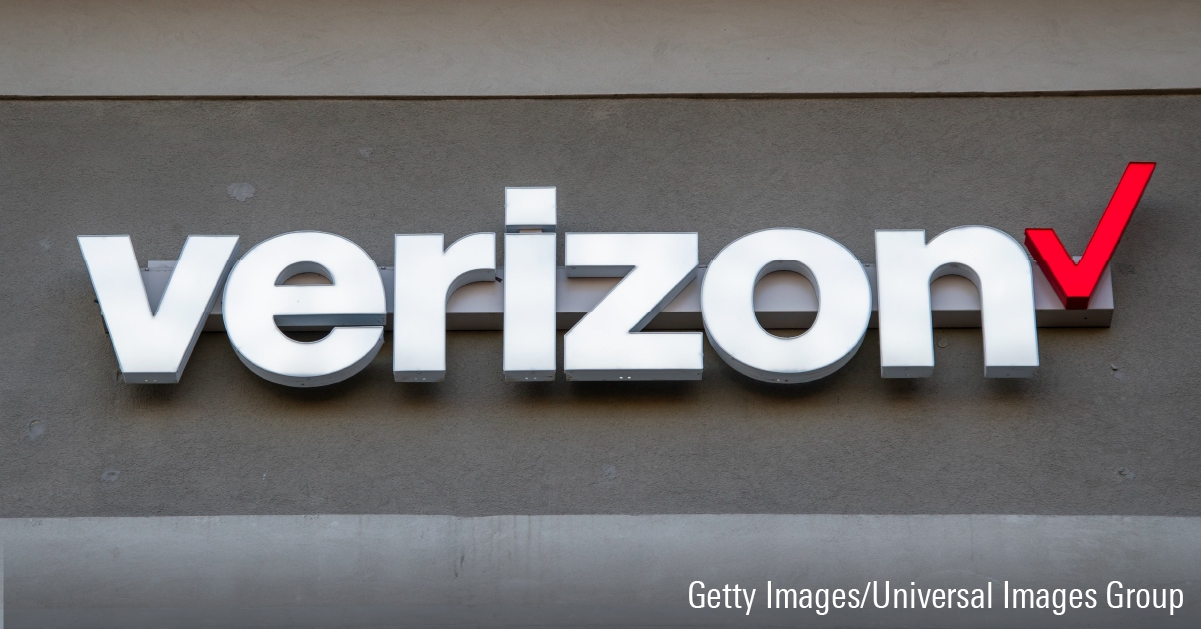Verizon Earnings: Modest Customer Growth Hasn’t Slowed Free Cash Flow
We view Verizon stock as very attractive.

Key Morningstar Metrics for Verizon
- Fair Value Estimate: $54.00
- Morningstar Rating: 5 stars
- Morningstar Economic Moat Rating: Narrow
- Morningstar Uncertainty Rating: Medium
What We Thought of Verizon’s Earnings
Cash flow was the key takeaway from Verizon’s VZ third-quarter results. The firm has already generated more cash in 2023 than in 2022, and it’s increased its full-year forecast to more than $18 billion from at least $17 billion. Verizon clearly expects free cash flow to expand in 2024, despite higher interest and tax payments, thanks to modest growth and another step down in network investment.
We continue to believe the improving competitive balance in the wireless industry will allow the three major U.S. carriers to improve profitability in the years ahead. We are maintaining our $54 fair value estimate and view Verizon shares as very attractive.
Verizon added only 100,000 net postpaid phone customers during the quarter, up from 8,000 a year ago but still likely far weaker than its rivals. However, we view weak volume growth as a net positive for the firm and the industry, indicating that Verizon isn’t being overly promotional to prop up its industry-leading market share. Average revenue per consumer postpaid wireless account increased about 2.2% versus a year ago (excluding an accounting change; 4.5% growth as reported). This was a slowdown from the first half of the year but was still solid, considering Verizon began raising prices on older rate plans in the middle of 2022.
Total revenue declined 2.6% year over year on fewer phone upgrades. Lower phone subsidies and cost-cutting efforts drove year-over-year adjusted EBITDA growth (0.2%) for the second consecutive quarter following more than a year of declines. Free cash flow thus far in 2023 has totaled $14.6 billion, with $8.2 billion paid out in dividends and $1.9 billion used to fund spectrum clearing costs and capitalized interest. The remainder has been used to reduce net debt, which is now at $143 billion, or 3 times adjusted EBITDA. Net debt will likely tick back up during the fourth quarter as Verizon funds remaining spectrum obligations tied to its C-band licenses, with substantial deleveraging in 2024.
Verizon Communications Stock Price
The author or authors do not own shares in any securities mentioned in this article. Find out about Morningstar’s editorial policies.

/s3.amazonaws.com/arc-authors/morningstar/12c6871b-2322-44d8-bd98-0437fa1a0a07.jpg)
/cloudfront-us-east-1.images.arcpublishing.com/morningstar/PJQ2TFVCOFACVODYK7FJ2Q3J2U.png)
/cloudfront-us-east-1.images.arcpublishing.com/morningstar/K36BSDXY2RAXNMH6G5XT7YIXMU.png)
/cloudfront-us-east-1.images.arcpublishing.com/morningstar/Z34F22E3RZCQRDSGXVDDKA7FGQ.png)
:quality(80)/s3.amazonaws.com/arc-authors/morningstar/12c6871b-2322-44d8-bd98-0437fa1a0a07.jpg)